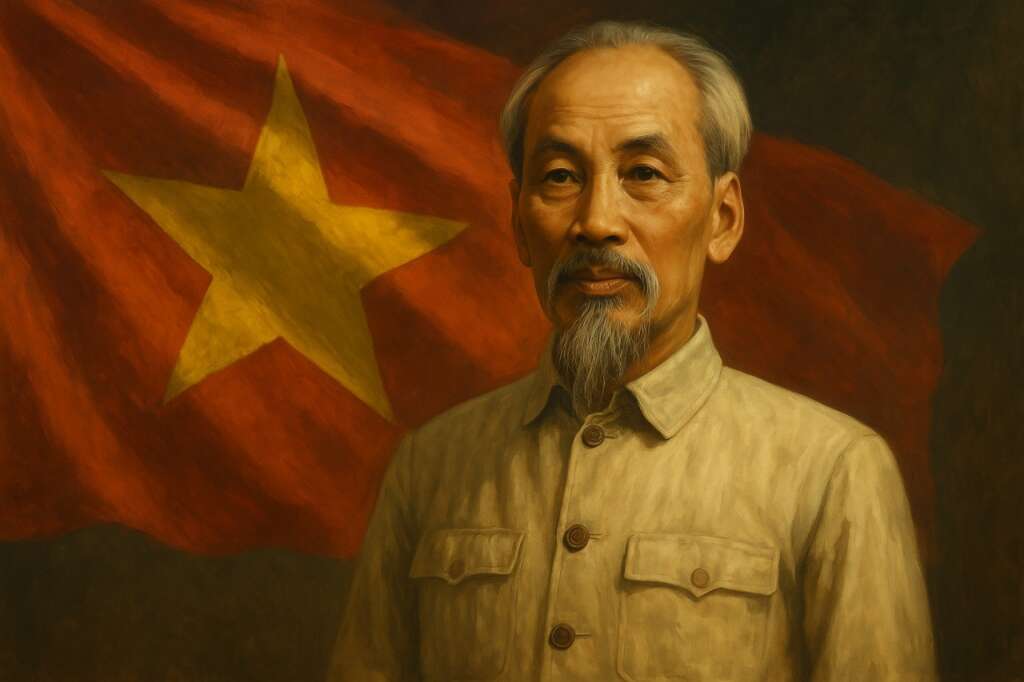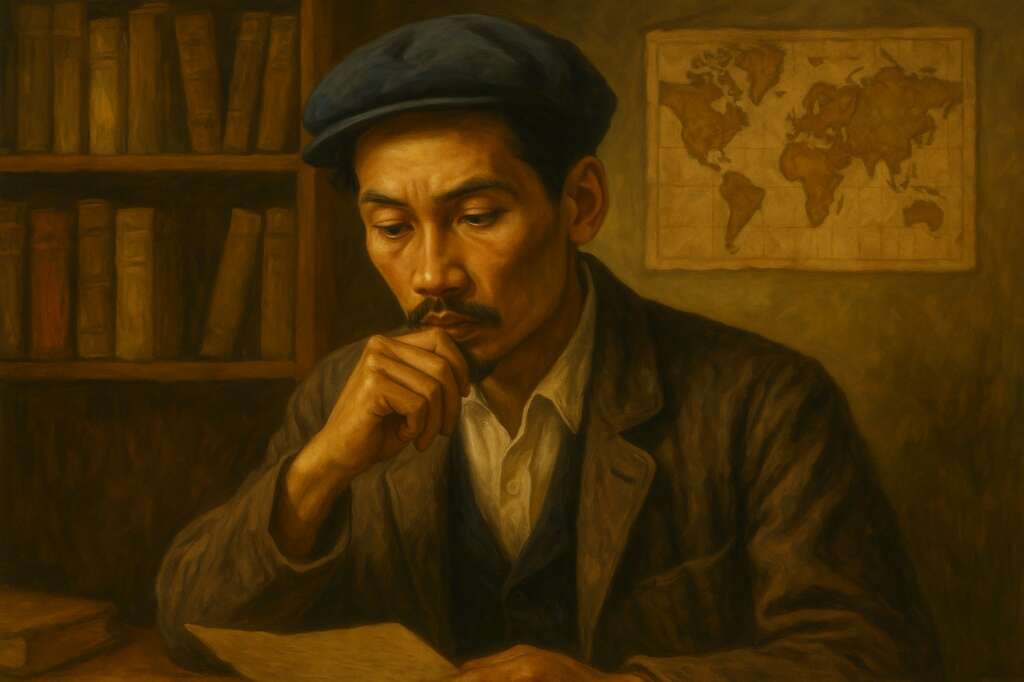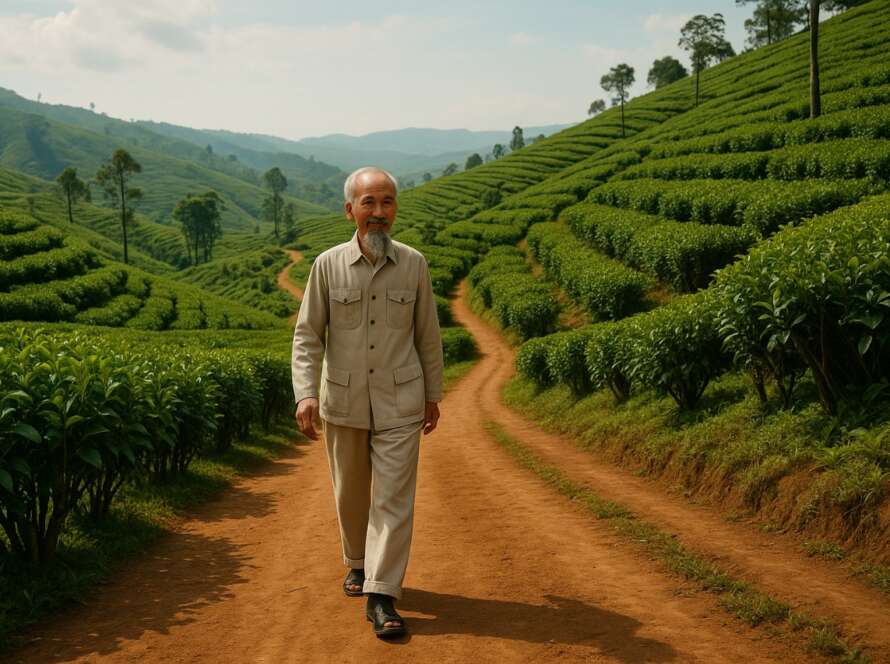
A Life Dedicated to Liberation and Independence
In the pantheon of 20th-century revolutionary leaders, few figures have left as profound an imprint on history as Vietnam’s Ho Chi Minh. Born Nguyen Sinh Cung on May 19, 1890, in Nghe An province, Ho Chi Minh’s journey from a humble village in central Vietnam to becoming the founding father of modern Vietnam represents one of history’s most remarkable odysseys of perseverance, vision, and unwavering dedication to national sovereignty.
Early Years and Global Education
Ho Chi Minh’s formative years were shaped by Vietnam’s colonial subjugation under French rule. The son of a Confucian scholar who had resigned from government service in protest against French colonialism, young Ho was immersed in an environment of intellectual resistance from an early age. His father’s influence instilled in him both traditional Vietnamese values and a critical consciousness of injustice.
At age 21, working as a kitchen hand aboard a French liner, Ho Chi Minh embarked on a transformative journey that would take him across the globe. From 1911 to 1941, he lived in London, Paris, New York, Moscow, and various parts of Asia, absorbing diverse political philosophies and revolutionary theories while developing his unique synthesis of nationalism, socialism, and pragmatism. During his time in Paris after World War I, he petitioned the Versailles Peace Conference to recognize Vietnamese rights, showing his early commitment to diplomatic approaches.
These international experiences were not merely academic for Ho Chi Minh. Working various jobs—from pastry chef to photographer’s assistant—he experienced firsthand the conditions of workers worldwide and the universal struggle against oppression. This period transformed him from a nationalist seeking independence into a sophisticated political thinker with a global perspective on liberation movements.
Revolutionary Leadership
Returning to Asia in the 1920s, Ho Chi Minh dedicated himself to building revolutionary capacity among Vietnamese exiles and within Vietnam itself. His founding of the Vietnamese Revolutionary Youth League in 1925 and later the Indochinese Communist Party in 1930 demonstrated his organizational genius and strategic vision. Yet what distinguished Ho from many revolutionary contemporaries was his ability to subordinate ideological purity to the practical necessities of Vietnamese independence.
The watershed moment came in 1941 when Ho Chi Minh established the Viet Minh (League for the Independence of Vietnam), a broad-based coalition focused primarily on national liberation rather than ideological revolution. This pragmatic approach allowed him to unite diverse elements of Vietnamese society against Japanese occupation during World War II and subsequently against French colonial restoration.
On September 2, 1945, Ho Chi Minh declared Vietnamese independence in Hanoi’s Ba Dinh Square, deliberately echoing the American Declaration of Independence: “All men are created equal. They are endowed by their Creator with certain inalienable rights; among these are Life, Liberty, and the pursuit of Happiness.” This strategic invocation of Western democratic principles revealed his diplomatic sophistication and understanding of international politics.
Leadership Philosophy and Personal Character

Beyond his political achievements, Ho Chi Minh’s enduring appeal derives from his personal character and leadership philosophy. Unlike many revolutionary leaders who succumbed to personality cults and authoritarianism, “Uncle Ho” (as he is affectionately known to the Vietnamese people) lived with remarkable simplicity and humility. His modest lifestyle—residing in a simple stilt house rather than a presidential palace, wearing his trademark simple clothing, and maintaining frugal habits—embodied his ethical consistency.
Ho Chi Minh’s leadership style emphasized education, persuasion, and moral example rather than coercion. His famous saying, “To reap a return in ten years, plant trees. To reap a return in 100 years, educate the people,” reflected his belief in sustainable development and human capacity building. Throughout his leadership, he insisted on maintaining close connections with ordinary Vietnamese, regularly visiting villages, factories, and schools to understand the people’s conditions firsthand.
His intellectual contributions extended beyond politics into literature and philosophy. Writing poetry throughout his life, including his famous “Prison Diary” composed during his 1942-1943 imprisonment in China, revealed his literary sensibility and humanistic outlook. His philosophical approach combined Confucian ethics, Buddhist compassion, and socialist egalitarianism into a uniquely Vietnamese revolutionary ethos.
International Legacy and Relevance Today
Ho Chi Minh’s influence extended far beyond Vietnam’s borders. His successful strategy of combining nationalist aspirations with international solidarity created a template for anti-colonial struggles worldwide. Leaders from Nelson Mandela to Fidel Castro acknowledged his influence on their own revolutionary approaches.
Perhaps most remarkably, Ho Chi Minh maintained his commitment to international reconciliation even amid the devastating conflicts with France and later the United States. He insisted that Vietnam’s quarrel was with colonial and imperial policies, not with the French or American people. This distinction allowed him to build international solidarity networks that proved crucial to Vietnam’s eventual success.
Today, as we face new global challenges of inequality, environmental degradation, and threats to national sovereignty, Ho Chi Minh’s emphasis on self-determination, sustainable development, and international cooperation remains profoundly relevant. His famous directive to “remember that the storm is a good opportunity for the pine and the cypress to show their strength and their stability” offers inspiration for confronting contemporary adversities.
For us in the Sri Lanka-Vietnam Solidarity Association, President Ho Chi Minh’s legacy provides a philosophical foundation for our work to strengthen bonds between our nations. His vision of a world where nations relate to each other with dignity and mutual respect, regardless of size or power, continues to inspire our efforts to deepen Sri Lankan-Vietnamese friendship and cooperation.
As we commemorate his life and legacy, we recognize in Ho Chi Minh not merely a Vietnamese national hero, but a visionary whose ideals transcend national boundaries and continue to illuminate paths toward justice, independence, and human dignity in our interconnected world.

